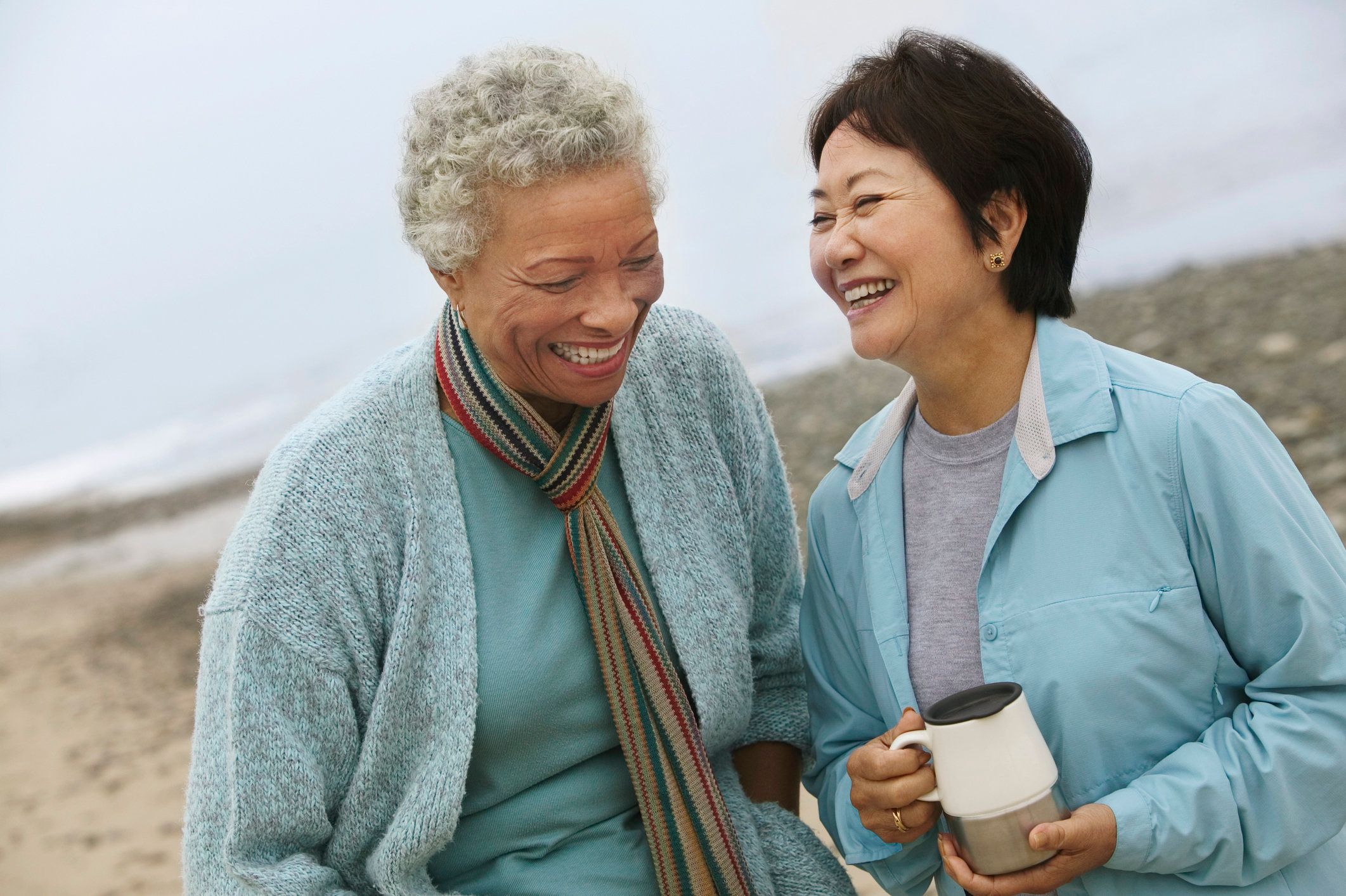In addition to staying active and maintaining strong muscles throughout your life, it's important to strengthen some of the hidden components of successful aging such as social relationships. Studies find that people who are lonely have much higher rates of heart disease and depression and are twice as likely to develop Alzheimer's disease as those who are more linked in with social networks.
Patricia Harris, MD, a geriatrician and associate professor at Georgetown University Medical Center who also directs Washington Hospital Center's House Call program, in which she and other doctors visit elderly patients in their home, sees it in her patients every day. Those who are doing best are those who interact with all age groups, not just their own.
"You also need to find something you're interested in, even after retirement." While golf is good, it's not enough. "The older people who are the healthiest are the ones who never retired," said Dr. Harris. "So they're interested in their own work, they look forward to going to work every day." Their work keeps them involved and interacting with others so they maintain that all-important socialization.
Even those who aren't working do best if they have something to look forward to, whether it's the birth of a grandchild or a trip, she said. "Something that makes them interested in life." It is also important to develop resiliency. Resilience is the ability to confront challenges—sometimes terrible challenges—and maintain some sense of equilibrium. Resiliency is why some people lose jobs and go out and start new businesses while others may sink into a depression and lose their homes.
Resiliency is important on the physical side because it prevents disease-triggering inflammation that occurs when you let stress get to you. It's important on the emotional side because it helps you remain happy and optimistic even as you age and experience age-related losses, enabling you to better cope with negative feelings such as sadness and anger. Studies find it is significantly linked to successful aging.
One of the best ways to build resiliency? By building a strong social support network. Another is embracing spirituality. We're not necessarily talking religion here, although that is certainly a form of spirituality. Instead, we're talking about the sense that there is something larger in life than yourself and your own problems.
Studies find such perspective helps you cope with stress and manage physical disabilities without giving in to them. In one study, 400 elderly people who said their personal beliefs gave meaning to their lives were five times more likely to be classified as aging successfully than those who simply thought they had good health.
If you attend religious services on a weekly basis, count another plus in your quest to age well. You're more likely to have low blood pressure, high levels of "good" cholesterol, less abdominal fat and lower levels of stress hormones than people who skip the sermons. You're also less likely to feel lonely as you age and, overall, more likely to live longer.
Spirituality and religion are also inextricably linked with another component of successful aging researchers see: civic engagement, or giving back. "Human beings need a sense of purpose," says Terrie Fox Wetle, PhD, a gerontologist and associate dean of medicine for public health at Brown University in Providence, RI., "and contributing to your world is one way to do that." Studies find people who volunteer are healthier than those who don't; they're even thinner because they move more!
All these components are things you can start today in preparation for tomorrow. Begin by envisioning how you want to live in the final third of your life, then develop a plan to get there. Eleanor Brownn did just that.
Ms. Brownn, 57, is so invested in the idea of aging well that she started a nonprofit company to help women of color reach that goal. Life-Long: Sisters Staying Healthy is a six-year-old, Los Angeles-based organization dedicated to helping African-American women maintain health, longevity and quality of life. Ms. Brownn, a gerontologist, started the organization when she hit middle age and couldn't find the answers to her questions about her changing body and emotions.
Life-Long offers support groups and monthly seminars on a variety of health and lifestyle issues facing women. They are all designed to respond to the need Ms. Brownn hears from the women she works with: "They say, 'I realize I'm getting older and I need to do something if I want to stay healthy.'"
"I see myself being much more active, staying in the workforce, being vital and engaged. I want to be as healthy as I can for as long as I can be, and I think that's different from my mother's generation. They wanted to be healthy but there was more of a slowing down or acceptance of slowing down that I don't see in my generation. We want to do it all and keep doing it. Whether that's realistic only time will tell, but the desire is there."


